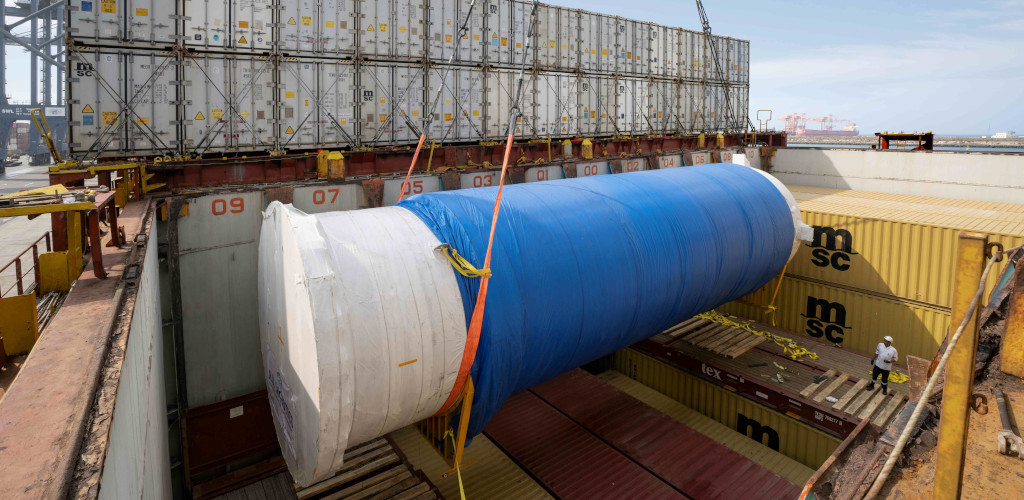Former Halliburton Executive John Vogt Presents the Latest in His Series on Incoterms

John Vo_15.png) gt, former Halliburton vice president of global logistics and a visiting professor at the University of Houston-Downtown, presents the latest in his series on Incoterms, the internationally recognized set of trade rules that sellers and buyers must follow when devising a contract for the shipment of goods. This week, John examines the mechanics behind choosing trade terms that strategically improve the service between the supplier and buyer.
gt, former Halliburton vice president of global logistics and a visiting professor at the University of Houston-Downtown, presents the latest in his series on Incoterms, the internationally recognized set of trade rules that sellers and buyers must follow when devising a contract for the shipment of goods. This week, John examines the mechanics behind choosing trade terms that strategically improve the service between the supplier and buyer.
New installments are published each month on the Breakbulk news page and in our online BreakbulkONE newsletter.
In the previous article we discussed research showing that businesses do not use Incoterms rules correctly nor maximize the value to the end customer. Let’s continue the discussion of those problems. The choice of one Incoterms rule means the company does not have a clear understanding of what and how these rules should be utilized to improve the delivery capability to the end customer.
The research shows that many companies choose the Delivery Duty Paid (DDP) rule for purchase and Ex Works (EXW) rule for sales. Where the purchase utilizes the DDP rule this requires the seller to do all the logistics work including paying for customs duties and final delivery in a country in which they may not registered, requiring the use of agents which increases cost and risk.
This means foreign payment capability and, inevitably, the use of third parties to effect the movement, which increases the risk.
This rule includes the cost of logistics into the purchase, which increases the size of the procurement category and hence the importance of the category. This is fraught with risk, as the Australian company that bought under the DDP rule from China found, when customs fraud was discovered.
The Australian customs authority charged the only company registered in Australia, which was the customer. The court case that followed upheld that the company had a duty of care to ensure the supplier was not defrauding the Australian Customs Authority, even though DDP was specified. Eventually this caused the company to declare bankruptcy as the duties and penalties became too large.
Equally the EXW has multiple problems, not the least with the buyer having to enter the premises of the seller, which is anathema for liability and a quick way to ensure that efficient operations are not maintained by the seller with external personnel inside the operation with their own focus to move their goods. This is a major safety risk as well.
But this also has major customs implications, as the buyer effects customs declaration for exports. If the buyer does this incorrectly – whether deliberately or not – the only party to the transaction in the seller’s county is the seller, and they will have to answer to the customs authority.
As they were aware the buyer was offshore, it will be difficult to prove they had no knowledge that the goods would be exported. The U.S. Customs have the principal party of interest concept, where the principal party is the seller, whether they carry out the export declaration or not.
We will finish this review of the research and the practical consequences in the next article. What is important is that Incoterms rules are not being utilized to ensure goods are moved in the most efficient and effective way, utilizing the capabilities of the seller and buyer.
Equally, the logistics department is not the primary chooser of the Incoterms rules in trade agreements; rather, it is held responsible and accountable for effecting the movement defined by the Incoterms rules, which is nonsensical.
Do you have an Incoterms experience to share that you'd like John to comment on and that could be included in a future article? Submit to Breakbulk's Leslie Meredith at [email protected] and include description, locations (origin and delivery), Incoterm used, and lesson learned if applicable.
PHOTO CREDIT: MSC
